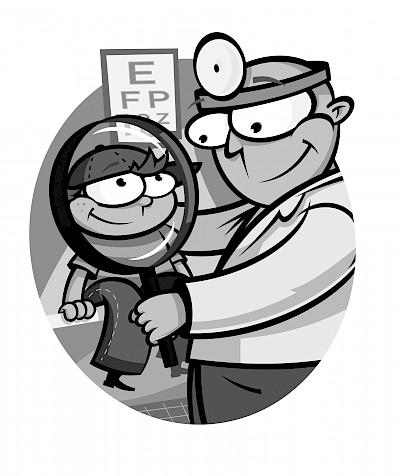Health Care Student: It's "a crime' to put negative labels on the mentally ill
October 2, 2015
Doctors and nurses should be looking out for their patients mental health as well as their physical health
by Danielle Ketel
 My first encounter as an individual with mental illness began before I was aware of the symptoms of the disease. Drinking and substance abuse was a way that members of my family dealt with their problems, which I assumed was normal. Now after growing older and realizing that there are many choices and problems you face, I understand substance abuse and alcoholism will not fix it or make life better. It's estimated by Healthy People 2020 that 25 percent of the population struggles with mental illness at one point in their lifetime, which means that there is mental illness within every facet of society. This made me curious as I began my career in medicine how an individual with mental health issues that simply goes to have a health screening can be identified and treatment may be started if they wish.
My first encounter as an individual with mental illness began before I was aware of the symptoms of the disease. Drinking and substance abuse was a way that members of my family dealt with their problems, which I assumed was normal. Now after growing older and realizing that there are many choices and problems you face, I understand substance abuse and alcoholism will not fix it or make life better. It's estimated by Healthy People 2020 that 25 percent of the population struggles with mental illness at one point in their lifetime, which means that there is mental illness within every facet of society. This made me curious as I began my career in medicine how an individual with mental health issues that simply goes to have a health screening can be identified and treatment may be started if they wish.
What I found was disconcerting: only individuals that have a serious mental break at an ER or become dangerous to themselves or others will get immediate treatment. Now if an individual has private insurance and sees a primary care physician regularly it can be a little simpler. In some research I found that I wasn’t the only one wondering were to connect the patient to reliable care.
In 2002 there was “President’s New Freedom Commission” whose goal was to identify what barriers were present in treatment of mental health. The results of the “New Freedom Commission” found that support and treatment was disconnected. There is no standardized mental health screening assessment that a nurse or practitioner can perform on a patient who are displaying symptoms, the only alternative is to refer to a psychologist or no further investigation if the patient refuses. Now working in an acute hospital setting, I see individuals who are struggling with breathing, not to mention feeling depressed about their current physical health and life situation. Through my training, I was directly working with patients who struggled with mental illness and were trying to put their lives back together.
So discussing with individuals and my patients what prevented them from seeking help was almost universal: they were more concerned with being labeled as “mentally ill” and not being heard by their physicians or other health care professionals. Now that is a bias that many in health care workers struggle with including myself. I was humbled to find that being a patient made them feel helpless, ignored and unheard.
I can only imagine the personal frustration when individuals feel they’ve been placed under the “mentally ill” label are attempting to get help for themselves and feel unheard. This is a crime that we are inflicting on our own society, I personally feel that it is so important for myself working in healthcare to find someone my patients can talk to if I am unable. Even beyond my professional life, I’ve identified in my personal life where I brush off a friend’s cry for help, sometimes it just requires you to validate they need to talk to a professional.
 Danielle Ketel was born and raised in Shasta County, left for a period of time and now has returned to work in the healthcare field.
Danielle Ketel was born and raised in Shasta County, left for a period of time and now has returned to work in the healthcare field.
